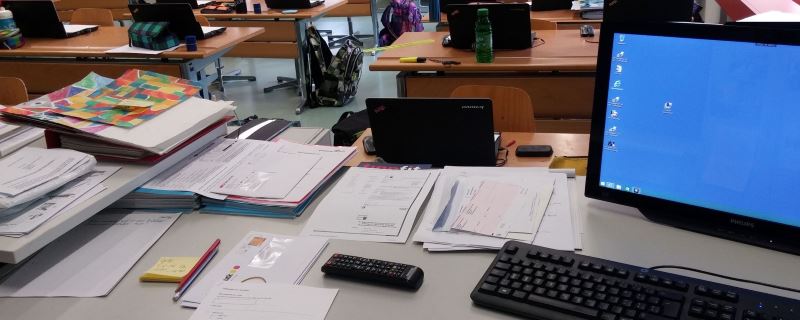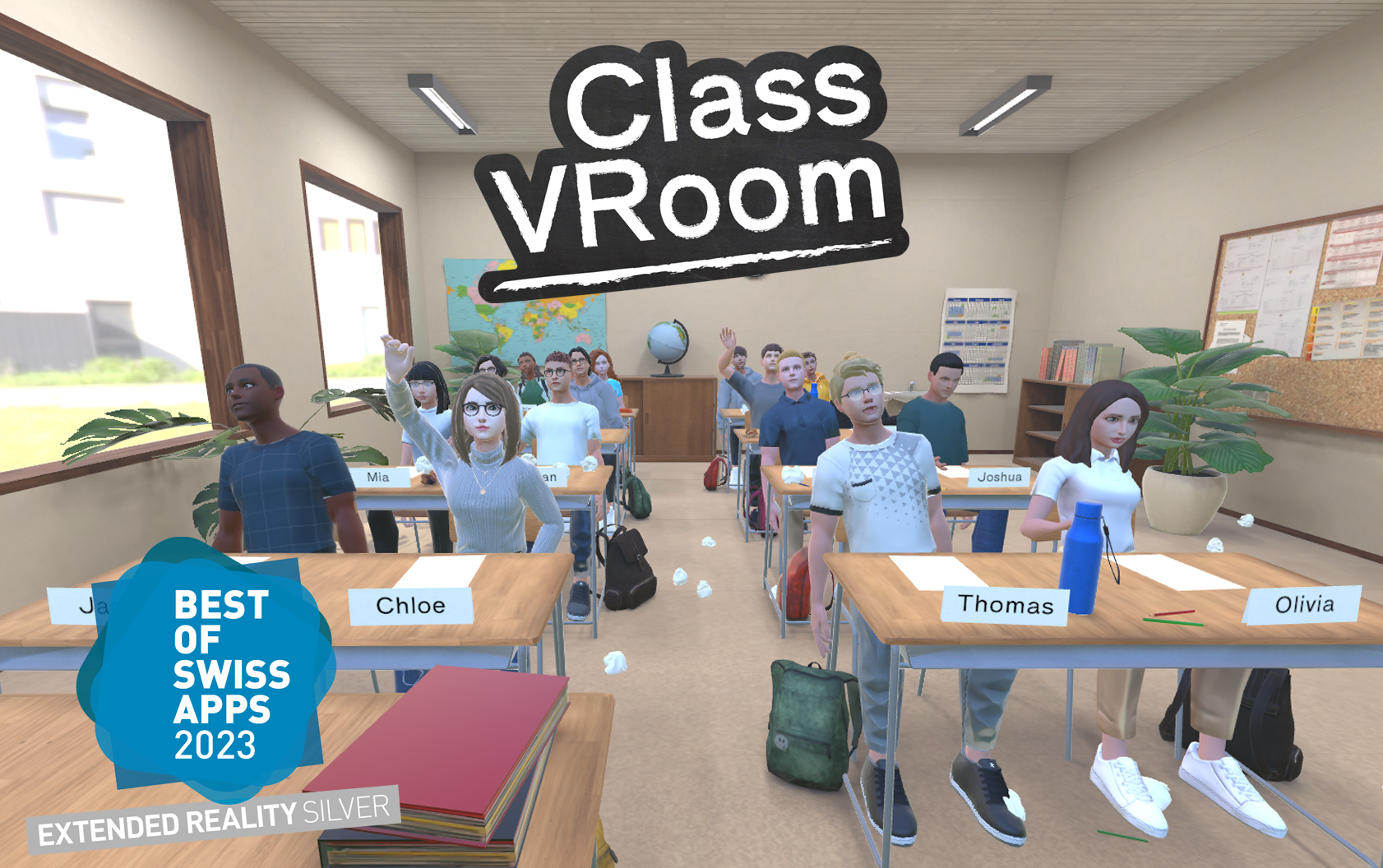Lehrstuhl für Allgemeine Didaktik und Mediendidaktik

Kurzportrait
Allgemeine Didaktik beschäftigt sich mit Theorien und Modellen zur effektiven Unterrichtsgestaltung. Sie bietet Lehrpersonen ein wissenschaftlich fundiertes Handlungs- und Reflexionswissen zur Planung, Durchführung, Beurteilung und Verbesserung ihres Unterrichts. Mit ihrem fächerübergreifenden Anspruch liefert sie einen Beitrag zur Verständigung über Fächergrenzen hinweg. Allgemeine Didaktik hat vielfältige disziplinäre Bezüge, von der Bildungstheorie bis zur empirischen Lehr- und Lernforschung. Sie kooperiert mit den Fachdidaktiken und den Fachwissenschaften der schulischen Fächer, um gemeinsam Unterricht zu entwickeln.
Mediendidaktik erarbeitet Leitlinien zum zielgerichteten Einsatz von Informations- und Kommunikationsmitteln in Lehr- und Lernkontexten. Dies umfasst die Entwicklung und die Auswahl von Lehr- und Lernmedien, die Planung medial unterstützter Unterrichtseinheiten sowie deren Umsetzung und empirische Überprüfung. Ein besonderer Fokus liegt dabei auf digitalen Lehr- und Lerntechnologien. Im Idealfall soll der Einsatz solcher Medien den Unterricht anschaulicher, aktivierender, motivierender und letztlich wirkungsvoller machen. Ausserdem sollen Lernende befähigt werden, diese Medien selbstbestimmt, kompetent und verantwortungsbewusst zu nutzen.
Forschungsthemen
Unterrichtsmethoden und Überzeugungen von Lehrpersonen
Personalisierte Lehr- und Lernformen
Integration digitaler Medien in Schulen
Informations- und Medienkompetenz
Digitale Formate der Lehrerinnen- und Lehrerbildung
Serious games und gamifizierte Lernformen
Aktuelle Publikationen
- Antonietti, C., Consoli, T., Schmitz, M.-L., Cattaneo, A., Gonon, P., & Petko, D. (2025). Digital constructivists, activators or presenters? Different profiles of technology integration among Swiss upper secondary school teachers. Computers & Education, 227, 105225.
https://doi.org/10.1016/j.compedu.2024.105225 - Cattaneo, A., Schmitz, M.-L., Gonon, P., Antonietti, C., Consoli, T., & Petko, D. (2025). The role of personal and contextual factors when investigating technology integration in general and vocational education. Computers in Human Behavior, 163, 108475.
https://doi.org/10.1016/j.chb.2024.108475 - Petko, D., Mishra, P., & Koehler, M. J. (2025). TPACK in context: An updated model. Computers and Education Open, 100244.
https://doi.org/10.1016/j.caeo.2025.100244 - Consoli, T., Schmitz, M.-L., Antonietti, C., Gonon, P., Cattaneo, A., & Petko, D. (2024). Quality of technology integration matters: Positive associations with students’ behavioral engagement and digital competencies for learning. Education and Information Technologies, 1–34.
https://doi.org/10.5167/uzh-265219 - Martínez-Moreno, J., & Petko, D. (2024). What motivates future teachers? The influence of artificial intelligence on student teachers’ career choice. Computers and Education: Artificial Intelligence, 7, 100296.
https://doi.org/10.1016/j.caeai.2024.100296 - Petko, D., Michos, K., Müller, L., Schmid, R., & Krannich, M. (2024). Investigating the use of a mobile portfolio app to develop pre-service teachers’ reflective abilities and orientations to learning to teach. European Journal of Teacher Education, 1–19.
https://doi.org/10.1080/02619768.2024.2414912 - Tondeur, J., Howard, S., Carvalho, A. A., Kral, M., Petko, D., Ganesh, L. T., Røkenes, F. M., Starkey, L., Bower, M., Redmond, P., & others. (2024). The DTALE model: Designing digital and physical spaces for integrated learning environments. Technology, Knowledge and Learning, 1–23.
https://doi.org/10.5167/uzh-265218 - Wolfensberger, A., Désiron, J. C., Domenech-Jakob, B., Petko, D., & Zingg, W. (2024). To see, or not to see… pathogens in virtual reality hand hygiene training. Infection Control & Hospital Epidemiology, 45(10), 1202–1207.
https://doi.org/10.5167/uzh-264444
- Brianza, E., Schmid, M., Tondeur, J., & Petko, D. (2024a). Is contextual knowledge a key component of expertise for teaching with technology? A systematic literature review. Computers and Education Open, 100201.
https://doi.org/10.1016/j.caeo.2024.100201 - Brianza, E., Schmid, M., Tondeur, J., & Petko, D. (2024b). The digital silver lining of the pandemic: The impact on preservice teachers’ technological knowledge and beliefs. Education and Information Technologies, 29(2), 1591–1616.
https://doi.org/10.1007/s10639-023-11801-w - Désiron, J. C., Schmitz, M.-L., & Petko, D. (2024). Teachers as Creators of Digital Multimedia Learning Materials: Are they Aligned with Multimedia Learning Principles. Technology, Knowledge and Learning, 1–17.
https://doi.org/10.1007/s10758-024-09770-1 - Gonon, P., Schmitz, M.-L., Petko, D., & Consoli, T. (2024). Von der Digitalisierung zur digitalen Transformation. Transfer. Berufsbildung in Forschung Und Praxis, 9(1), Online.
https://transfer.vet/von-der-digitalisierung-zur-digitalen-transformation/ - Michos, K., & Petko, D. (2024). Reflection using mobile portfolios during teaching internships: Tracing the influence of mentors and peers on teacher self-efficacy. Technology, Pedagogy and Education, 1–21.
https://doi.org/10.1080/1475939X.2024.2311798 - Schmid, M., Brianza, E., Mok, S. Y., & Petko, D. (2024). Running in circles: A systematic review of reviews on technological pedagogical content knowledge (TPACK). Computers & Education, 105024.
https://doi.org/10.1016/j.compedu.2024.105024 - Schmitz, M.-L., Consoli, T., Antonietti, C., Cattaneo, A., Gonon, P., & Petko, D. (2024a). Examining 21st century skills in BYOD schools: From programs to practice. Zeitschrift Für Bildungsforschung, 1–24.
https://doi.org/10.1007/s35834-024-00425-w - Schmitz, M.-L., Consoli, T., Antonietti, C., Cattaneo, A., Gonon, P., & Petko, D. (2024b). Why do some teachers teach media literacy while others do not? Exploring predictors along the “will, skill, tool, pedagogy” model. Computers in Human Behavior, 151, 108004.
https://doi.org/10.1016/j.chb.2023.108004
